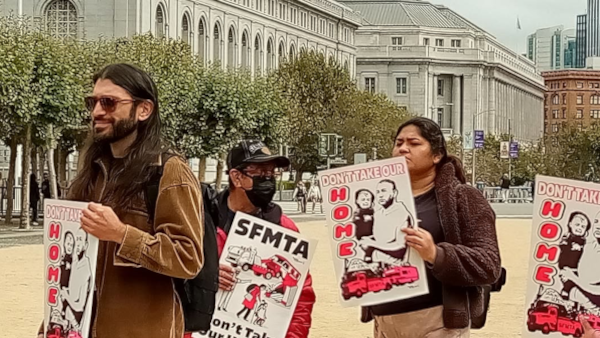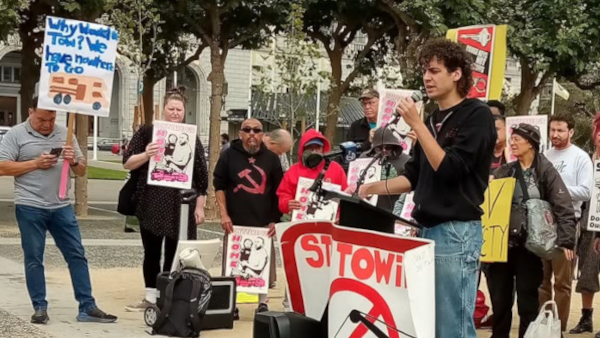
San Francisco CA. On December 10, for the first time in its history, the San Francisco Board of Supervisors overturned a decision passed by the San Francisco Municipal Transportation Authority (SFMTA) Board of Directors that would have banned oversized vehicles citywide.
The move prevented the ban from taking effect. It would have targeted streets in the Lake Merced area after vehicle-dwelling San Franciscans were swept from the area earlier this year.

Initially passed on October 1, the original resolution granted the director of transportation sole authority over restricting oversized vehicles parked on specific city streets from 12 a.m. to 6 a.m., punishable by tow if the residents don’t accept shelter—regardless of whether shelter space is available.
Current law requires the SFMTA Board of Directors to pass a separate resolution per street in order to restrict overnight parking of oversized vehicles, after holding public hearings. .
Proposed by departing Mayor London Breed, the resolution would have eroded that public input, leaving it to the SFMTA director to assign at will. The SFMTA board passed the resolution on a 6-1 vote.
Enforcement of the ban was paused after the End Poverty Tows Coalition filed an appeal with the Board of Supervisors in late October, pending a decision by the lawmaking body.
In the coalition’s presentation, Gabriel Medina, executive director of La Raza Community Resource Center, urged the supervisors to reject the resolution and instead focus on investing in infrastructure that directly supports vehicularly housed people.
“We need to prioritize and invest in sustainable solutions that work,” Medina said, “such as culturally and linguistically competent engagement to get people housed and provide appropriate services; targeted services to meet needs, such as fixing vehicles; RV and mobile home parks; [and] safe parking sites, including community self-run sites.”
After End Poverty Tows’ presentation, members of the public were invited to speak in support of the appeal and the overturning of the ban. About 50 people lined up to ask for the ban to be overturned, including many RV residents who expressed their experiences facing harassment by city workers and housed neighbors alike.
“I live in fear and I feel like I cannot trust anyone,” Jorge Rivas, a RV resident who faced assault for living in his vehicle, told the Supervisors in Spanish through a translator. “I would like to know where it is where I can actually live.”
The SFMTA presented a rebuttal, but no one in public comment spoke in favor of the ban.
Once the coalition gave a three-minute response, Supervisor Dean Preston spoke in support of the community members who shared public comment, calling the City’s infrastructure to support the 90% of unsheltered families living in vehicles “inadequate.” The board passed Preston’s motion to reverse the SFMTA resolution conditional on written findings by the City Attorney’s office.
Supervisor Rafael Mandelman was the only member who spoke in favor of the SFMTA’s resolution. He spoke to his constituents’ demands “that they be able to use their public spaces, that they not be privatized in a completely unregulated way.”
The ban was overturned on a 7-3 vote, with Supervisors Joel Engardio, Matt Dorsey and Mandelman voting in opposition.
GLIDE policy manager Eleana Binder applauded the successful appeal as a human rights victory. “This decision reaffirms that we cannot solve homelessness by hiding it or punishing those experiencing it,” she said. “The Board of Supervisors has sent a clear message: We need solutions rooted in dignity, equity, and investment—not in mass displacement and criminalization.”
(Reprinted from the Street Sheet, a Publication of the Coalition on Homelessness)
